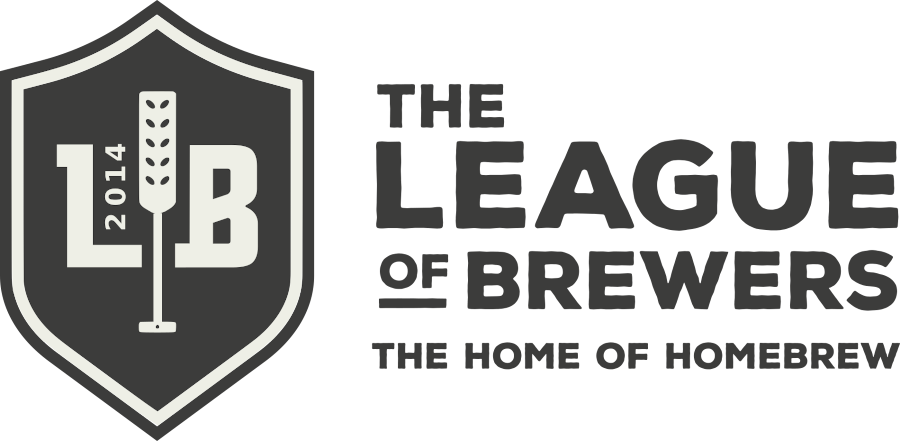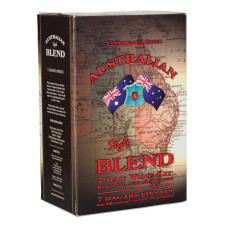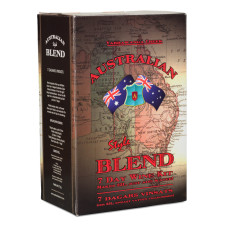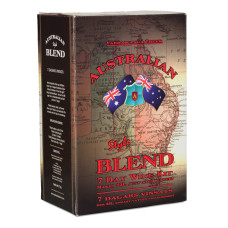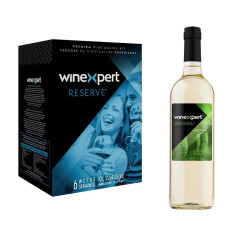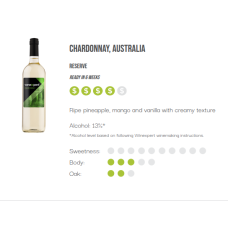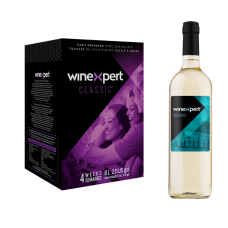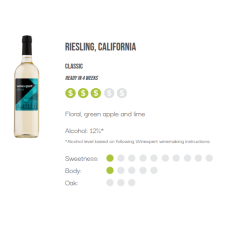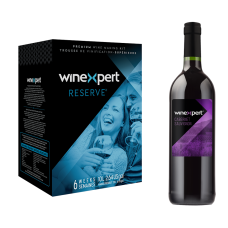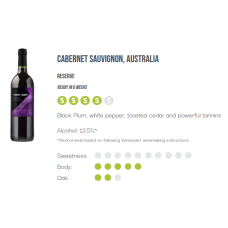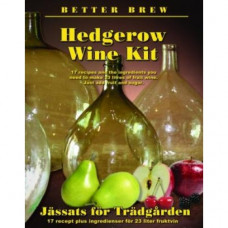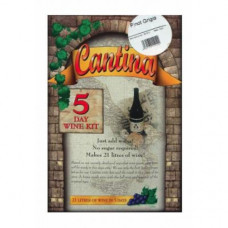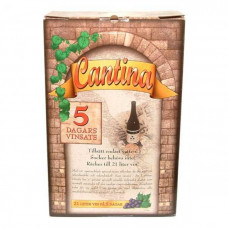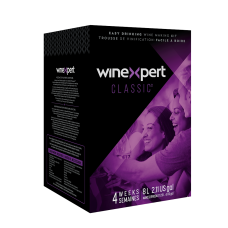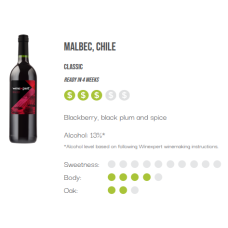Ingredients
-
Australian Merlot 7L Wine Making Kit (Makes 23L)
Australian Blend 7 Day Wine Kit Merlot
Creating a perfect commercial grade wine in only a week !
Weighing in at an impressive 7kgs net, it's all here.
No sugar required. You just add water.
-
Australian Cabernet Sauvignon 7L Wine Making Kit (Makes 23L)
Australian Blend 7 Day Wine Kit Cabernet Sauvignon
Creating a perfect commercial grade wine in only a week !
Weighing in at an impressive 7kgs net, it's all here.
No sugar required.
You just add water.
-
Australian Shiraz 7L Wine Making Kit (Makes 23L)
Australian Blend 7 Day Wine Kit Australian Style Shiraz
Creating a perfect commercial grade wine in only a week !
Weighing in at an impressive 7kgs net, it's all here.
No sugar required. You just add water.
Out of Stock -
WineXpert Reserve Wine making kit Australian Chardonnay 10L (MAKES 23L)
Wine making kit containing 10L of grape juice to create a Chardonnay style wine with flavours of ripe pineapple, mango and vanilla with creamy texture.
SWEETNESS: DRY
OAK: MEDIUM
BODY:MEDIUM
ALCOHOL: 13.0%MAKES 23L
-
WineXpert Classic Wine making Kit California Riesling 8L (makes 23L)
This Winexpert Classic California Riesling is floral with notes of green apple and lime.
APPROACHABLE & EASY DRINKING
Looking for a delicious and versatile wine for any occasion?
Winexpert Classic™ is the perfect wine to have on hand for life’s big events and everyday moments. -
WineXpert Reserve Wine making kit Australian Cabernet Sauvignon 10L (MAKES 23L)
Wine making kit containing 10L of grape juice to create a Cabernet Sauvignon style wine.
Black Plum, white pepper, toasted cedar and powerful tanninsSWEETNESS: DRY
OAK: HEAVY
BODY: FULL
ALCOHOL: 13.50%MAKES 23L
-
Hedgerow Wine kit
7 recipes and the ingredients you need to make 23 litres of fruit wine.
Just add fruit and sugar.
Ingredients: Wine yeast and nutrient, Bentonite, Citric Acid, Enzyme, Stabiliser (E202, E224), Finings A (Kieselsol), Finings B (Chitosan)
(Contains sulphites and a product of crustacea.)
Manufactured by Hambleton Bard UK
Out of Stock -
Cantina Pinot Grigio Wine Kit
A classic white variety, medium to dry and very flavoursome.
Makes 21 litres in 5 days, just add water, 18 litres for fuller flavour and body.
Ingredients: Grape Concentrate, Water, Sugar, Precervative (E223), Wine Yeast and Nutrients, Stabiliser (E223, E224).
Manufactured by Hambleton Bard, UK
Out of Stock -
Cantina Chardonnay Wine Kit
Cantina Chardonnay Wine Kit
Makes 21 litres or 18 litres for fuller flavour and body
A German style white wine. Fruity and aromatic with some residual sweetness from the riesling and trebbiano grapes.
Out of Stock -
WineXpert Classic Wine making kit Chilean Malbec 8L (MAKES 23L)
Wine making kit containing 8L of grape juice from Chile to create a Malbec style wine with flavours of blackberry, black plum and spice.
SWEETNESS: DRY
OAK: MEDIUM
BODY: MEDIUM-FULL
ALCOHOL: 13.0%

